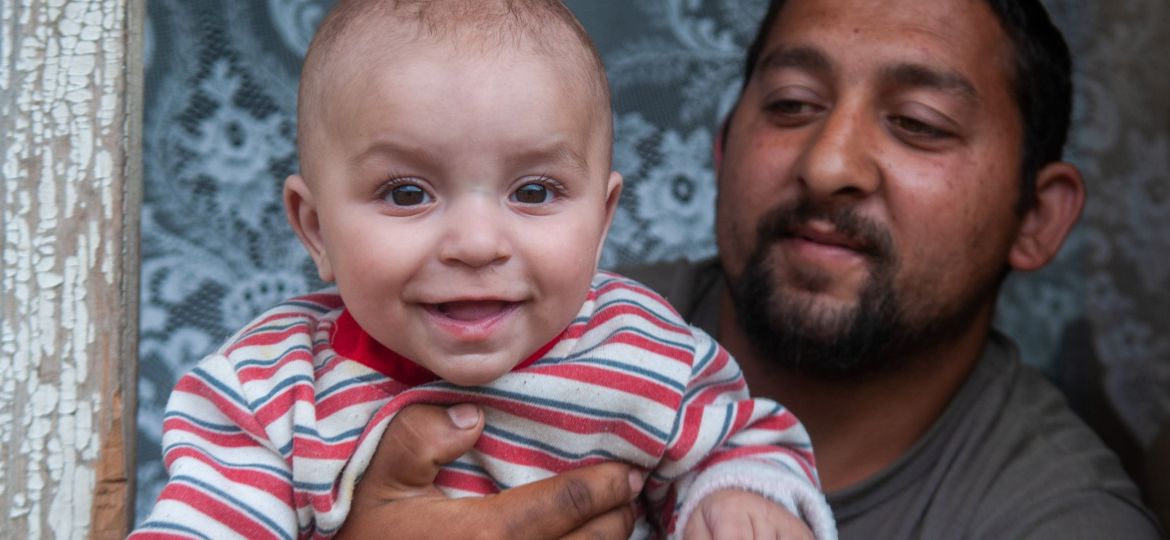Meet Pavlina and Stoyan
Pavlina, Stoyan and their two children live in the Fakulteta district in Sofia. Their older child is a 2nd grade student and attends school regularly, and it’s important for the family that the child thrives in the learning process and receives high grades. The youngest child is a year old, and is taken care of by Pavlina, who’s on maternity leave. Stoyan, the father, is a taxi driver.
During the state of emergency resulting from Covid-19, Stoyan continued to work as much as he could, attempting to follow the rules and instructions to prevent infection. However, the emergency situation was dynamic, and soon the family’s predominantly Roma neighborhood was quarantined, with checkpoints and police posts on exits. The father’s work soon began to decline, as restaurants and shops closed and people stayed at home. The family was reduced to relying on the modest financial income from Pavlina’s maternity benefits, and it became clear that the family couldn’t survive without a steady income for more than a week.
When schools closed, the older child had to stay at home and study online. Distance learning was, however, a serious challenge for the family, who didn’t own a computer or laptop. Remote learning therefore had to be done via cell phone, on a plan with limited data. Pavlina was receiving information about school lessons only sporadically, depending on whether her phone had internet connection, and she then had to study with the child and explain the new lessons. This meant taking time to become familiar with the lessons, while at the same time taking care of the baby. Unsurprisingly, this was extremely difficult for the entire family and as a result the child didn’t cope well with the learning material.
The HESED Foundation’s Family Assistance project, funded by the Iris Programe, stepped in to help the family during this difficult time. They provided suitable food for the baby, and worked with Pavlina to help her register the child for the kindergarten system so she could return to work at the end of her maternity leave. They also ensured that the family received significant support to reduce educational inequalities. This meant the older child was able to participate in a Summer Academy in summer 2020, and have ongoing twice-weekly Bulgarian language and mathematics classes, also benefitting from a subscription to an online learning platform (shared with a neighboring child.)
Once the state of emergency was over, Stoyan again found work as a taxi driver, although passenger numbers remained much lower than previously. The family values the support provided as timely, extremely appropriate, accessible and, of course, preserving of their human dignity.
This project was funded by the Iris Programme, which was set up to provide assistance to vulnerable children (and their families) affected by Covid-19. The Programme sprang out of an initiative by the Bulgarian Donors’ Forum, the National Network for Children and the Workshop for Civic Initiatives Foundation. It is managed by the Workshop for Civic Initiatives Foundation, and the main donor is Tanya’s Dream Fund.
